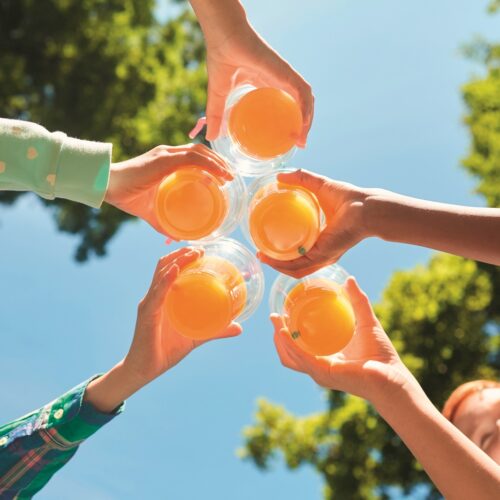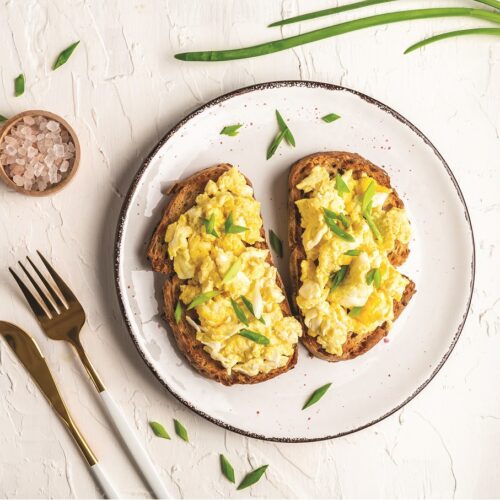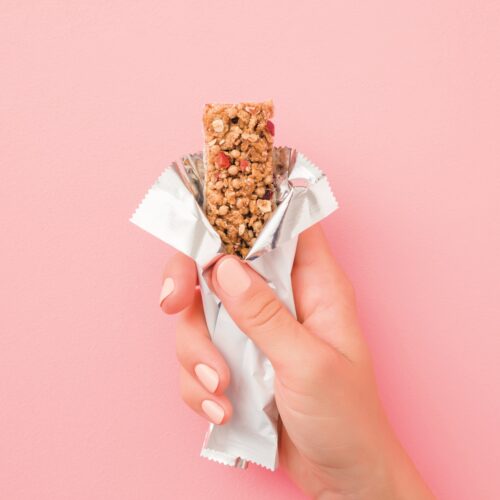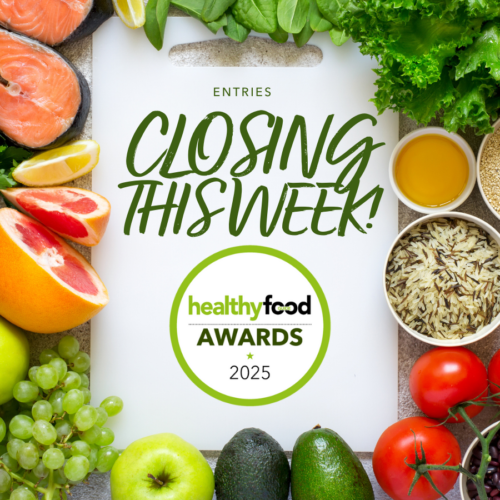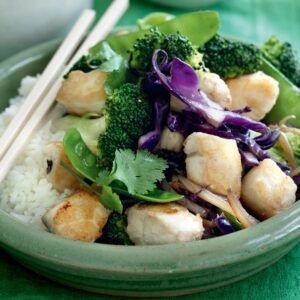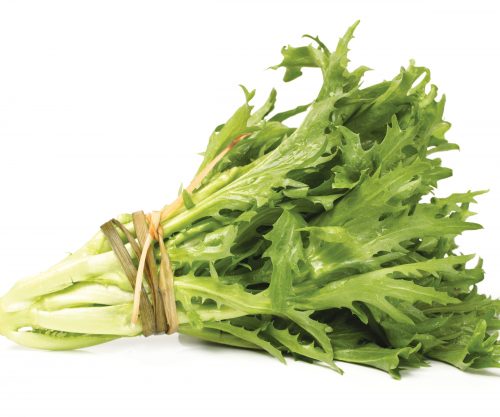
Endives
Belgian endive and endive are both, technically, chicory. However, Belgian endive (pronounced on-deeve), or witloof, is grown from chicory roots, without light, and is white and a torpedo shape, while endive (pronounced en-dive) is grown outside as a green curly lettuce.
Endive is generally eaten as a salad leaf. Belgian endive is more broadly used. Raw in salads, it is pleasantly bitter and crunchy, or the outer leaves can be stuffed. But its versatility is in cooking. You can braise it, roast it, use it as a side dish, a pizza topping, added to stews, quiches or stir-fries… your only limit is your imagination.
Nutrition facts
Endive leaves are a good source of folate and vitamin A, from carotenoids. One study found carotenoid concentrations are higher in summer than winter and higher in older than younger leaves. Endive leaves add useful amounts of fibre, potassium and non-haem iron. By weight, Belgian endive has lower amounts of these nutrients, except for fibre, which it has more of.
Star ruby grapefruit
The star ruby has the darkest flesh of all the red grapefruit varieties. The pulp is juicy with a sweet-tart flavour and it contains few, if any, seeds.
The grapefruit was originally named the ‘forbidden fruit’ of Barbados in 1750 and a hybrid of the sweet orange and a large citrus fruit called pomelo.
Traditionally, mainly used at breakfast as fruit, juice or marmalade, grapefruit is also a popular addition to salads, baked dishes, cocktails, vinaigrette or frozen desserts. Or you can just cut and eat them.
Nutrition facts
The red colour of the star ruby is from lycopene, an antioxidant carotenoid also found in tomatoes. Like all citrus, grapefruit is a great source of vitamin C, so is a good addition to vegetarian meals, as this will help non-haem iron absorbtion. However, if you take any medication it’s important to note that grapefruit has compounds that can interact with some drugs, including statins, some antibiotics and the common blood thinning drug warfarin.
Recipes
• Orange and grapefruit salad with pistachios
Fresh this month
(Harvested in New Zealand gardens in September)
Vegetables
Asparagus, avocado, broad beans, broccoli, beetroot, Brussels sprouts, cabbage (red and green), carrots, cauliflower, celeriac, celery, fennel, globe artichoke, Jerusalem artichoke, kale, leek, lettuce, parsnips, peas, radish, rhubarb, silver beet, spinach, swede, turnips.
Herbs
Basil, chives, dill, marjoram, mint, oregano, parsley, rosemary, sage, thyme.
Fruit
Grapefruit, lemons, limes, oranges, tamarillos.
Article sources and references
- de Azevedo-Meleiro CH. 2005. Carotenoids of endive and New Zealand spinach as affected by maturity, season and minimal processing. Journal of Food Composition Analysis 18:845-55https://www.infona.pl/resource/bwmeta1.element.elsevier-9a3f05ab-42da-32aa-a518-4b24b392d7e1
- Bailey DG et al. 213. Grapefruit-medication interactions: Forbidden fruit or avoidable consequences? CMAJ 185:309-16https://www.ncbi.nlm.nih.gov/pubmed/23184849
- WebMD. 2012. Drugs that Interact with Grapefruit on the Rise, www.webmd.comhttps://www.webmd.com/drug-medication/news/20121127/grapefruit-some-medications-risky#1
www.healthyfood.com




